7 Phrases Deeply Unhappy Children Use On A Regular Basis, According To Experts
The world can weigh heavily on little shoulders.
 Isaiah Thomas | Unsplash
Isaiah Thomas | Unsplash Bad news, ineffective parenting, and dysfunctional families can hit hard, and it often hits children harder. Research from Frontiers in Pediatrics showed, "Viewing extreme violence, either directly by witnessing acts or indirectly by watching them in the media, affects children’s mental and emotional health, and some children are at a higher risk for negative effects than others."
Deeply unhappy children don't always come out and say they're unhappy — but their words often tell a deeper story. When a child is struggling emotionally, certain phrases tend to pop up again and again in everyday conversation. And while these statements may seem small or dismissive on the surface, they can be quiet calls for help.
Here are 7 phrases deeply unhappy children use on a regular basis, according to experts:
1. 'My tummy aches'
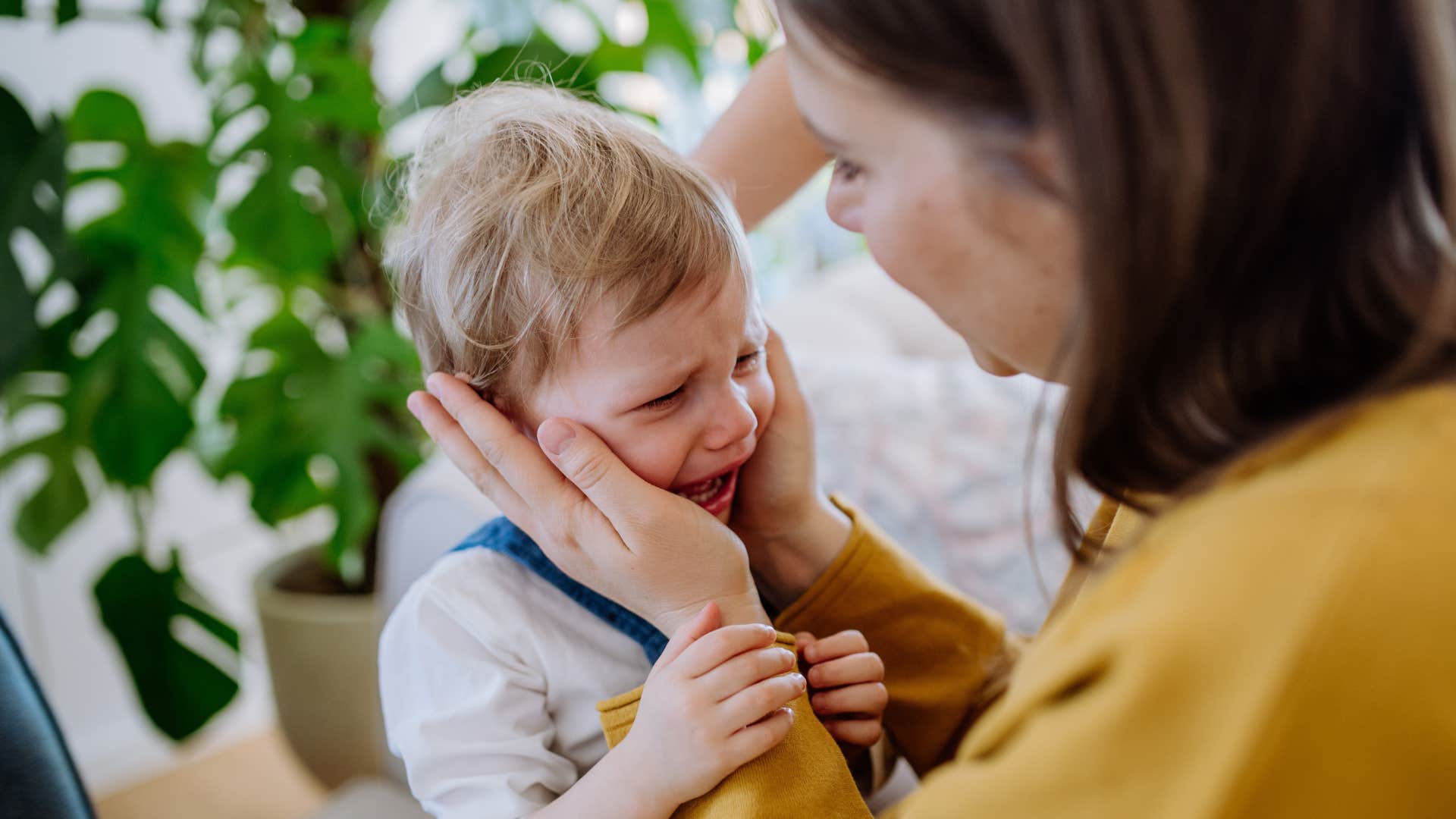 Halfpoint via Shutterstock
Halfpoint via Shutterstock
Other examples, if used consistently: 'My muscles are sore,' or 'I have a headache.' Therapist Dr. Darleen Claire Wodzenski explains how child depression can come about as a result of separation from a parent or caregiver, illness or injury, and childhood abuse or neglect. Sometimes, strange situations can cause children to experience depressive symptoms, like a car accident or witnessing domestic violence.
The signs of infant and child depression vary, making it hard for parents to detect. What parents notice is that their child is upset, sad, or moody. When the changes in an infant's or child's behavior are serious enough to concern parents, it is time to check with a pediatrician or child mental health expert.
2. 'Why do you always yell at me?'
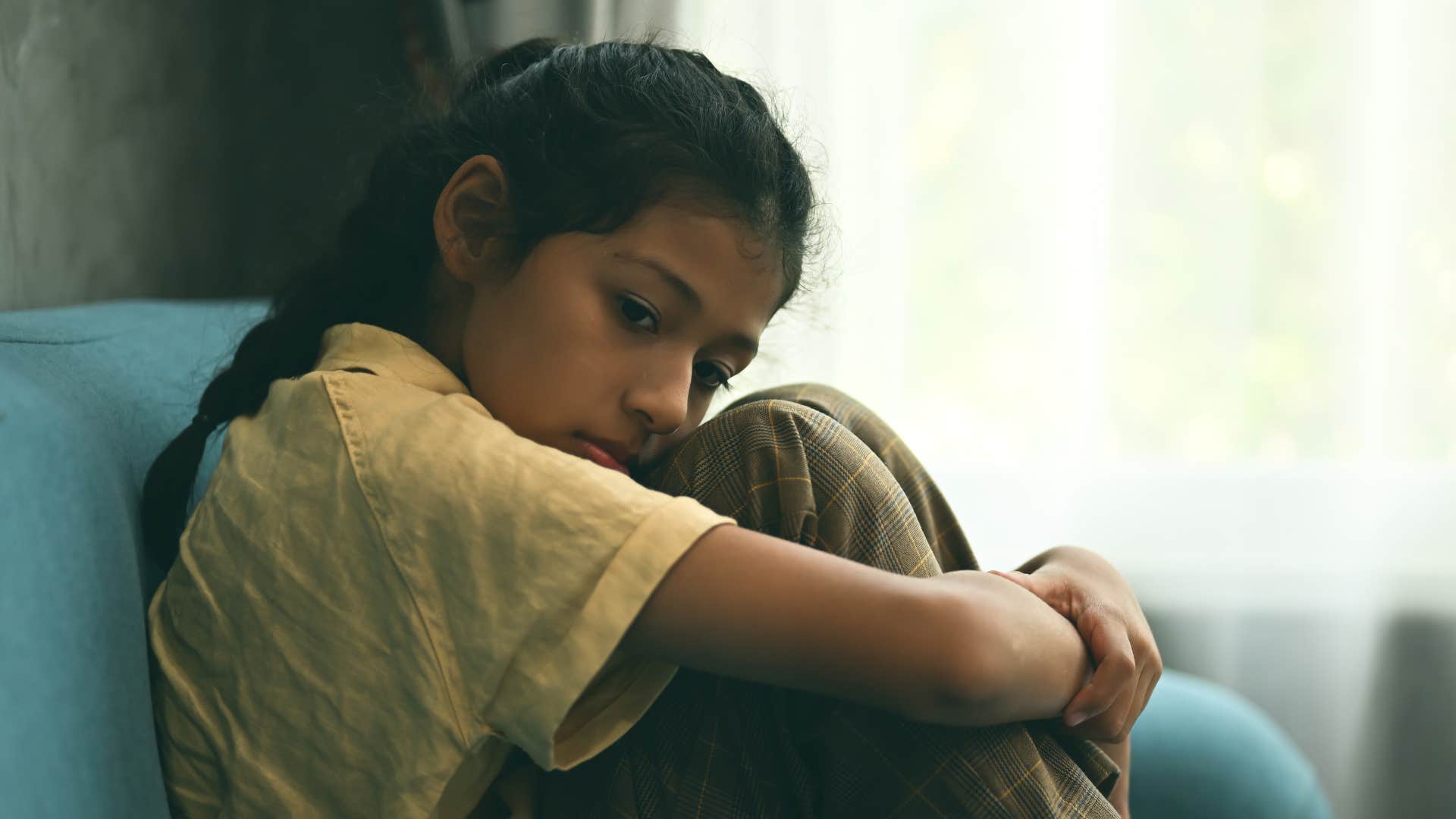 1st footage via Shutterstock
1st footage via Shutterstock
This comes from a perceived persistent exposure to negative interactions, criticism, or conflict, reflecting emotional distress and insecurity, says family counselor Larry Michel. This is particularly common when the child is in Figurative Talking Style and the parent is in Structural Talking Style — the very direct communication feels to them like they are being yelled at.
As a family counselor, I always inquire of whoever feels they are being yelled at, if their partners or parent raised their voice, and eighty percent of the time, the answer is, "No, they didn't scream or yell at me, but it felt like it, or I know they wanted to."
Once the perception of anger or dissatisfaction is felt, Michel says even the softest voice can be perceived as yelling, especially if the communication is direct and expressed without the feeling of compassion. Parents and partners, you must be aware of your children's and partner's talking style, or you are going to fall victim to these misunderstandings and conditioned fears.
3. 'I'm bored'
 MAYA LAB via Shutterstock
MAYA LAB via Shutterstock
Divorce attorney Jennifer Hargrave notes how this phrase signals the child is looking for external stimuli to keep them entertained, rather than learning how to create interest from within.
Research from The Journal of Humanistic Psychology explained how "the habitually bored show more external ambivalence, passive avoidance, and shame, as well as a tendency toward passive hope and identity confusion. The depressed show more internal ambivalence, willful (but futile) determination, and guilt as well as a tendency toward hopelessness and identity objectification."
4. 'They made me'
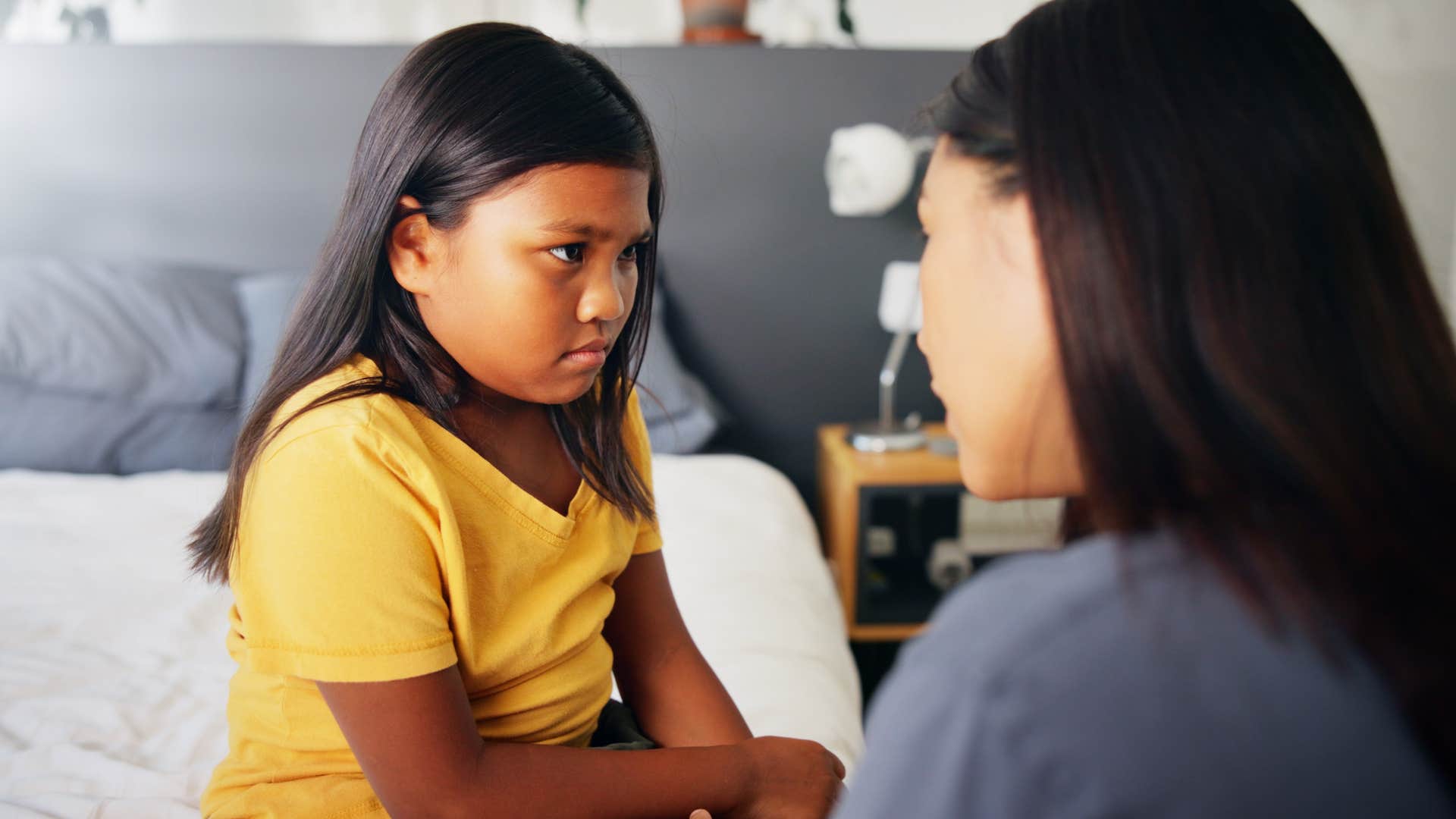 PeopleImages.com - Yuri A via Shutterstock
PeopleImages.com - Yuri A via Shutterstock
Unhappy children use this phrase because, like unhappy wives and unhappy husbands, they feel like victims because no one has taught them how to access the key to life, points out life coach Susan Allan.
Coach Allan adds, "I have taught children from the ages of 4 to adults who are 84 how to take accountability for themselves. It is how to motivate and inspire other people in such a way that everyone's needs can be met through communication and cooperation."
5. 'You love her/him more than you love me'
 Evgeny Atamanenko vioa Shutterstock
Evgeny Atamanenko vioa Shutterstock
Editor and astrologer Aria Gmitter knows this is a phrase deeply unhappy children use regularly. It can sound like a controlling statement, but it's not. It's a cry for help, healing, wholeness, and compassion.
Of course, as a parent, nothing could ever replace your child. However, this comparison statement suggests they don't feel safe in your love, and it's your job as a parent to help them reach that place of security, not dismiss it with a simple, "Of course, that's not true!" Saying that is invalidating and only deepens their sadness.
What your child is saying is they are afraid of losing you, and it's also silently inferring they are so fearful it will stunt their growth, and they won't take risks. Because to be away from you also means something else could take their place. This deepens their unhappiness because they lack the foundation they need to grow into confident, flourishing, happy children.
The cure? Parents are a child's first teacher, so what you model, they will do. Quitting the things you love teaches control. Including them in it teaches trust. Make room and adjust for love to encompass all things, from people to experiences.
Show them love is never a limited resource, and there is room for many more things in both of your lives, such as friends, trips, and unique adventures, both together and apart. Show them your love can be trusted and relied upon because when they need you, you'll be there.
6. Silence
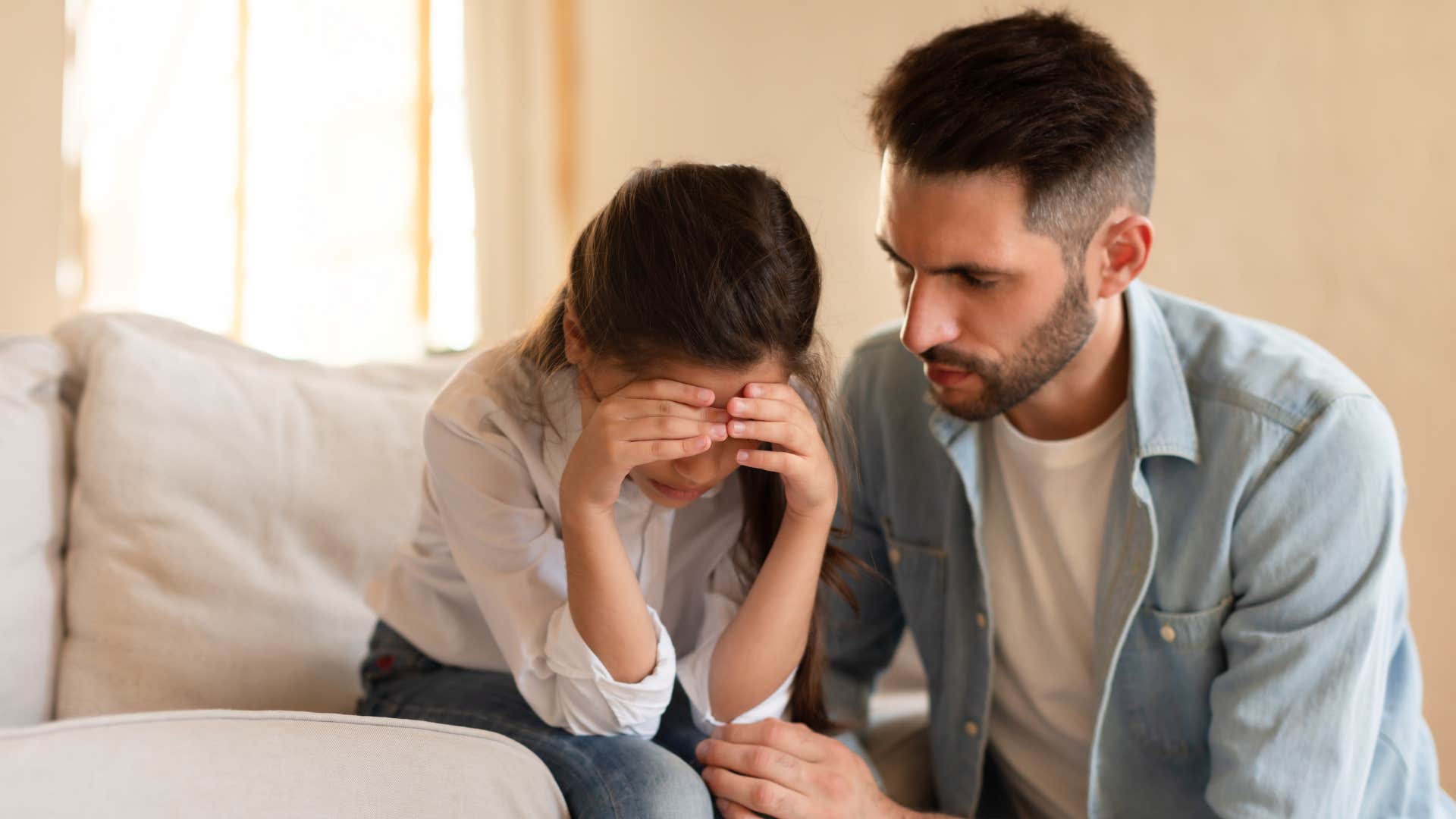 Prostock-studio via Shutterstock
Prostock-studio via Shutterstock
“Hide your emotions from others, or others will think less of you.” Sadly, this dysfunctional message has been carried forth with many children, advises child psychologist Jonice Webb, Ph.D, making children believe that others will use their feelings against them.
Children who believe that others will judge them for showing their feelings can be a sign of child neglect, mainly because it indicates a childhood where expressing emotions was not validated or even discouraged. This leads to a learned belief that vulnerability and emotional openness will be met with criticism or disapproval from others.
7. 'You'd be better off without me'
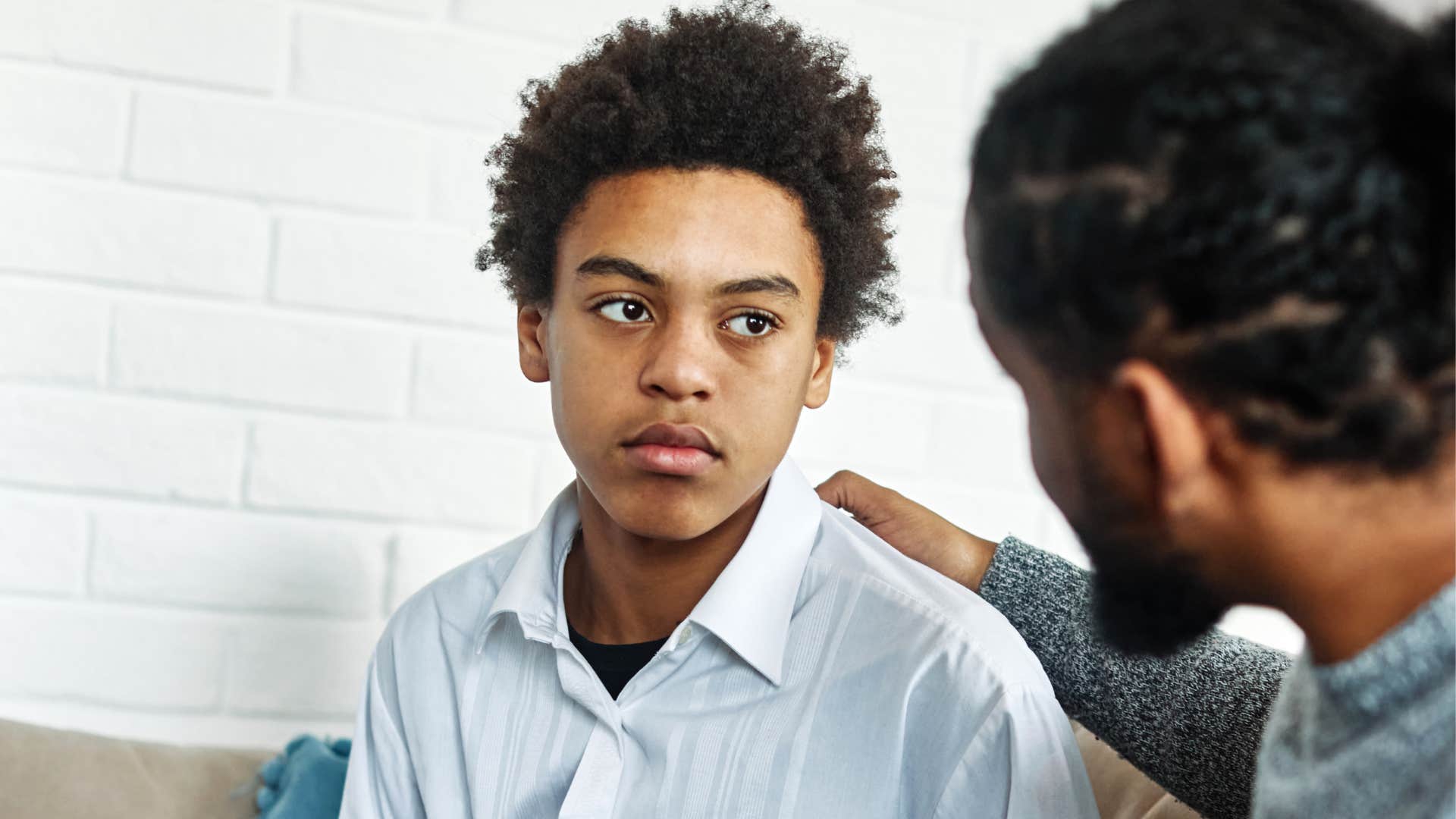 pics five via Shutterstock
pics five via Shutterstock
Depression often runs in families, explains family coach Frank Medlar, and this phrase in particular is a big alarm bell that something is very wrong and needs immediate action.
Causes of depression may be related to abuse or triggered by a stressful life event like divorce, a death, or a breakup. Whatever the cause, depression is a biological condition. It is not something to be ashamed of, and it needs to be treated. A combination of medication and cognitive behavioral therapy is often recommended for children and teens. Noticing the signs of depression in children is important so they can get the help they need.
Will Curtis is YourTango's expert editor. Will has over 14 years of experience as an editor covering relationships, spirituality, and human interest topics.

